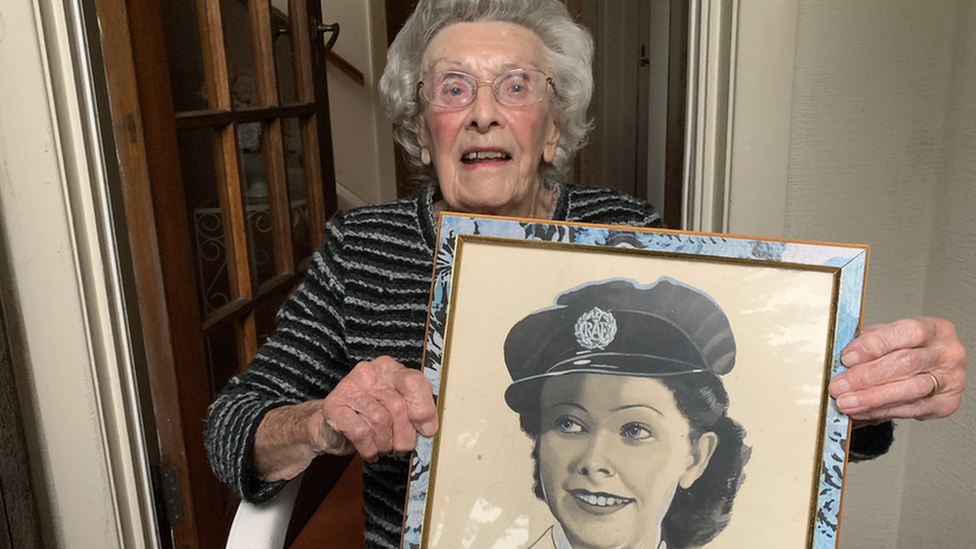Secret WW2 bravery of Welsh mum who survived Nazi Germany and saved a historic church
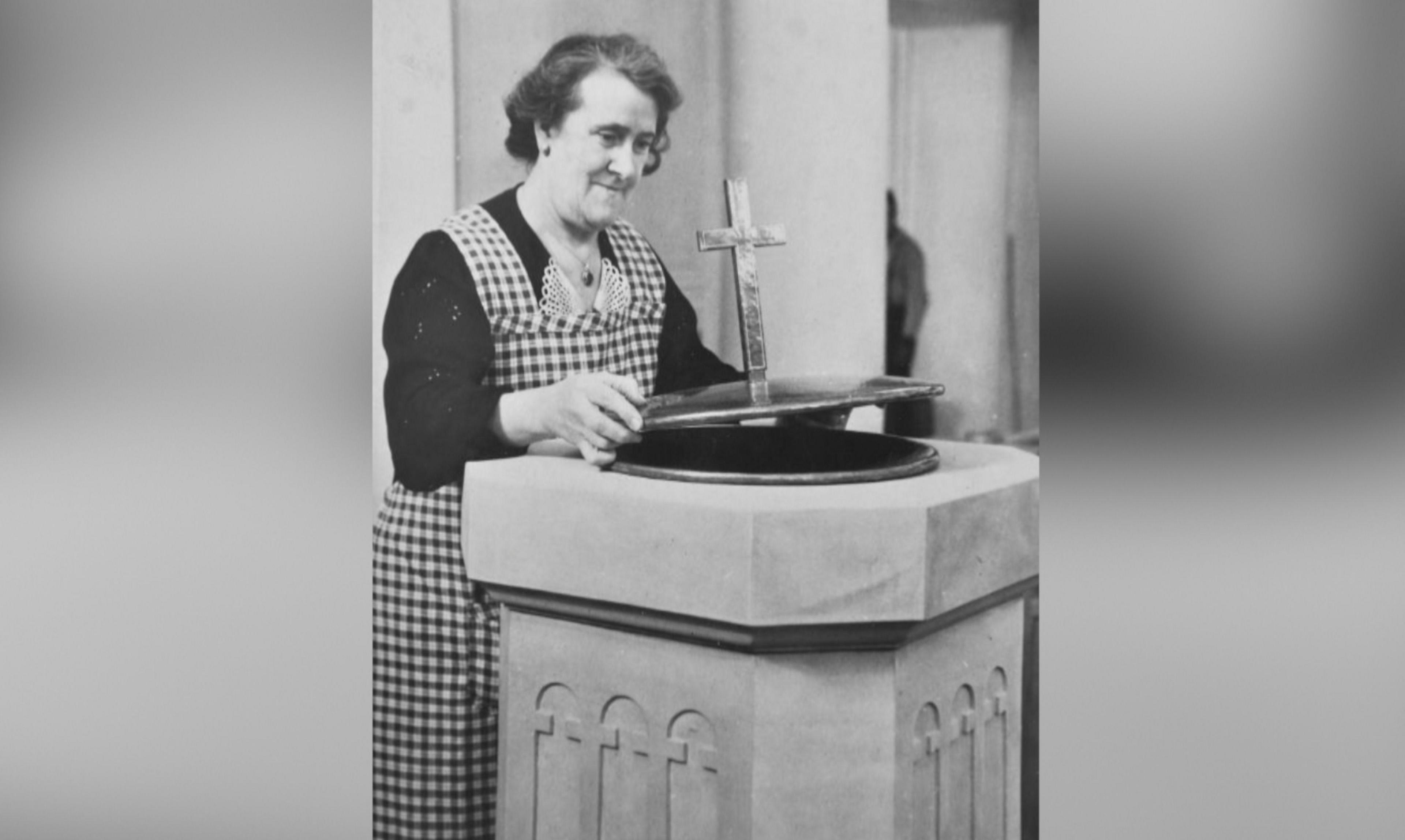
Mabel Wulff risked her life to protect the St Thomas à Becket Church in Hamburg
- Published
Hidden away in a church in Hamburg is a plaque dedicated to a relatively unknown Welsh woman, outlining astonishing acts of bravery.
Mabel Wulff from Newport lived in Nazi Germany - surviving years of Gestapo harassment and bravely fighting fires caused by falling bombs.
The plaque says the St Thomas à Becket Anglican Church, known as simply "the English church" for many years, would have been destroyed without her - after she hid its artwork to save it from damage and smothered fires as they started.
She also sheltered people to save their lives.
"She’s a part of history - Newport history and Hamburg history," says Eddie Wulff, Mabel’s grandson who has spent the past few years trying to learn more about his grandmother’s life.
"But very few in Wales seem to know about it. She was formidable."
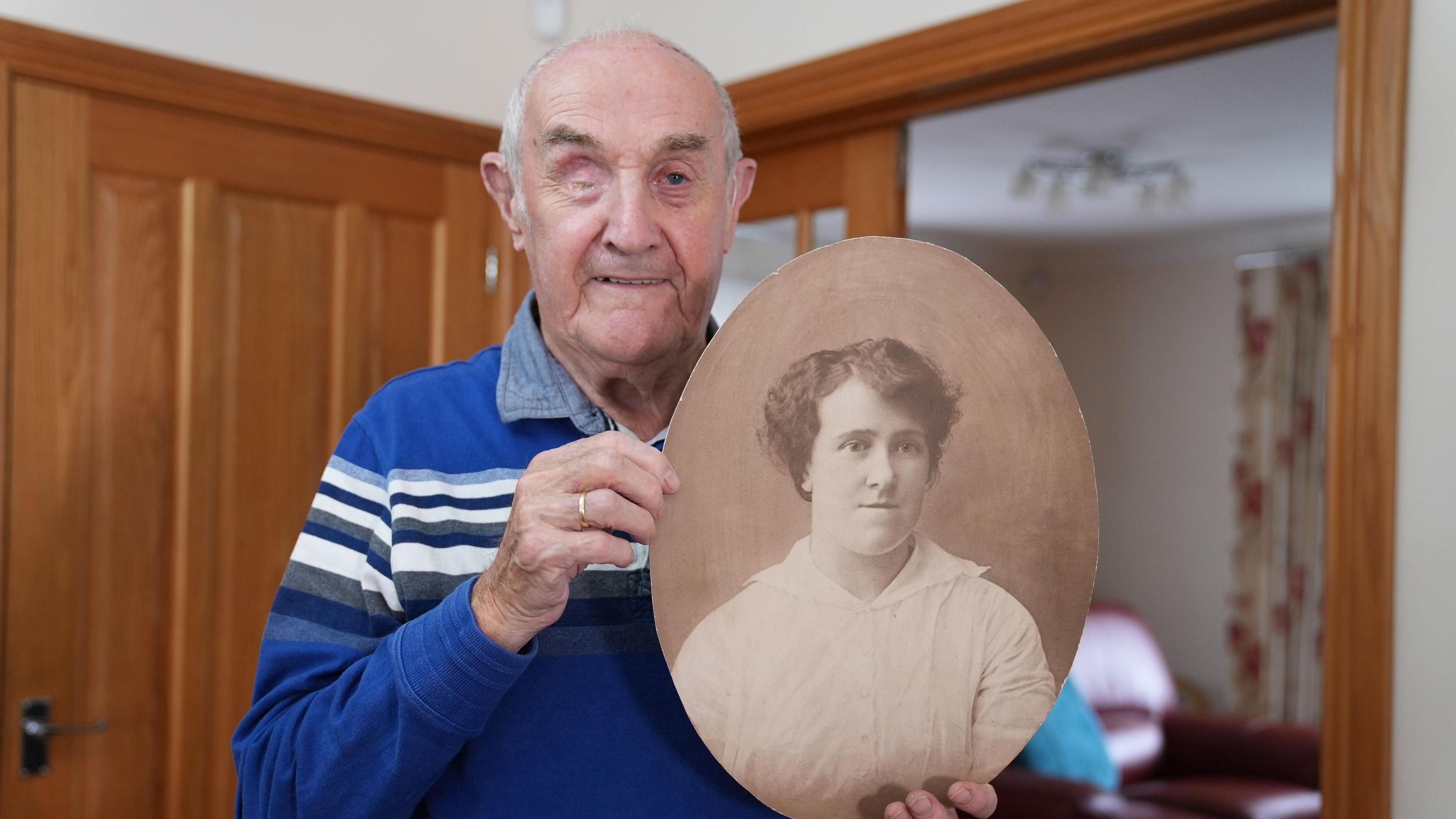
Eddie Wulff, 82, believes his grandmother Mabel's actions should be remembered
It is a story that begins in Newport in 1909 when seamstress Mabel Phillips married Max Wulff, a German sailor.
They couldn’t have imagined the difficulties ahead, with Max setting up a restaurant on Alexandra Road in the Pill area of the city and the couple welcoming two sons in 1911 and 1913.
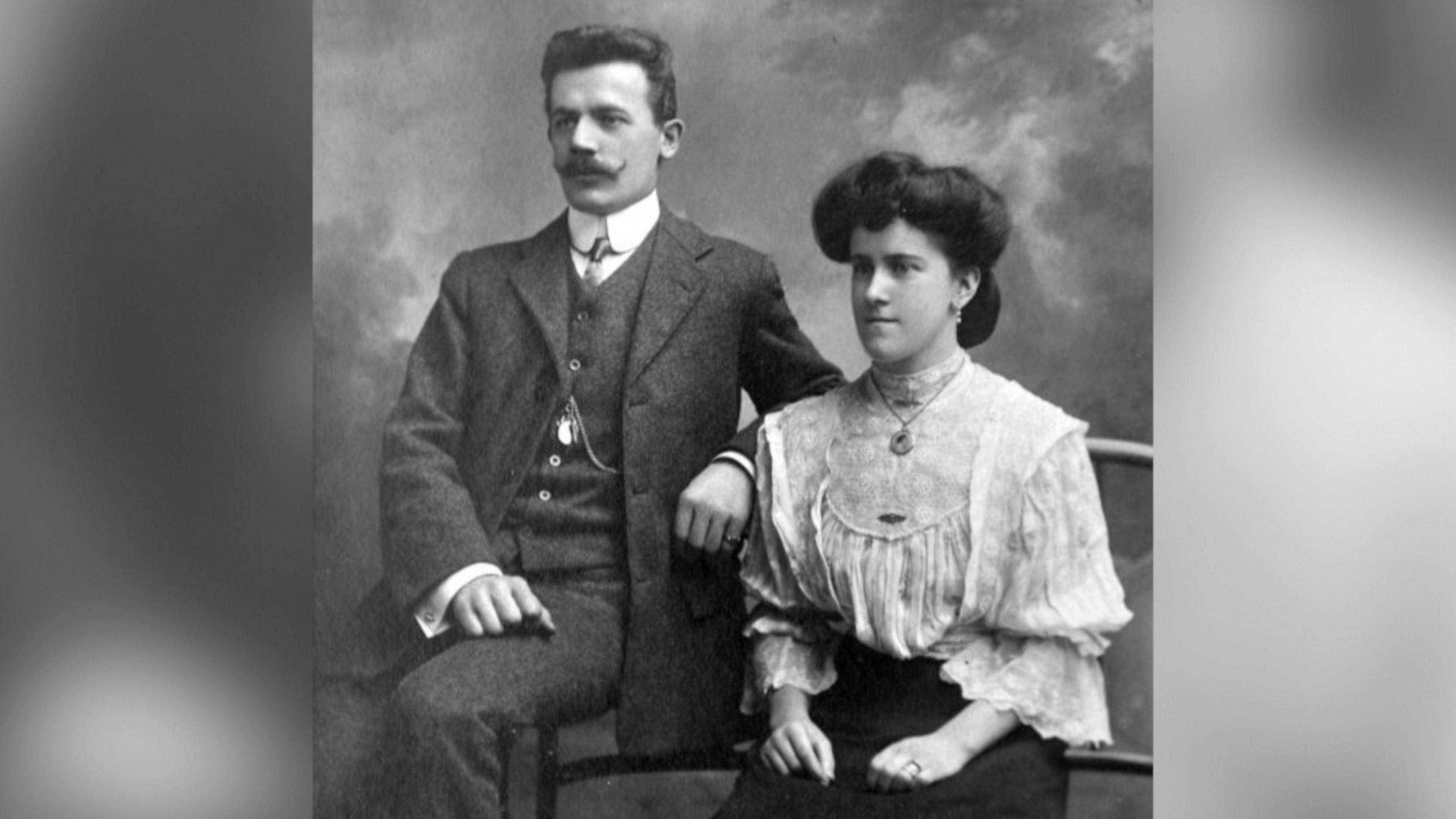
Max and Mabel Wulff met and fell in love in Newport
But the family were separated, with Max seen as an enemy by the British government and sent to camps in Lancaster and on the Isle of Man.
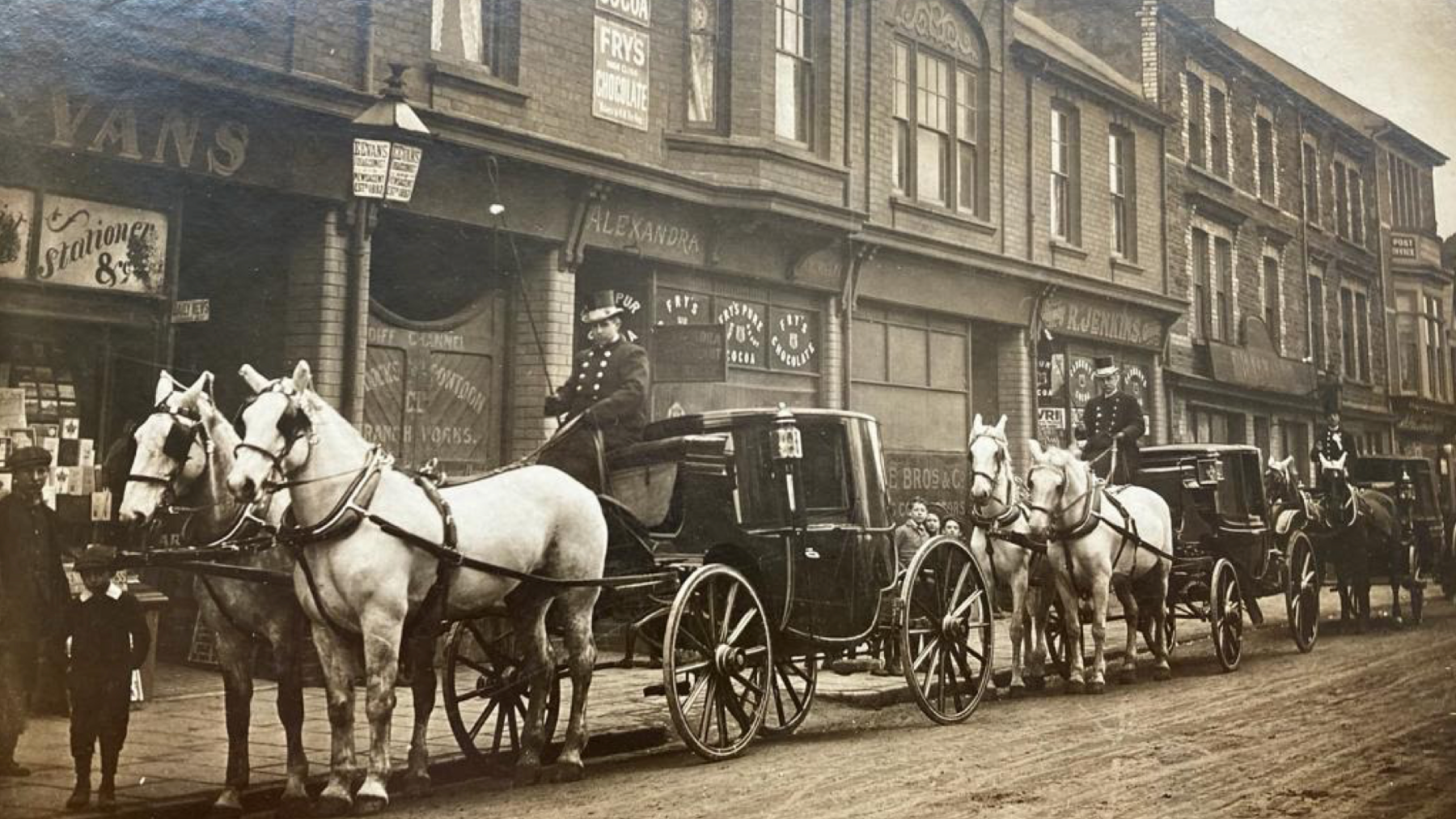
This photo shows the horse and carriage used for Max and Mabel's wedding on Alexandra Road in Pill
Life for Mabel and her sons Edward and Leonard became difficult, says Eddie.
"There was a lot of anti German feeling in Newport. They asked Mabel whether she would divorce Max because he was a German - she refused to do that."
It was a feeling Eddie himself remembers, being in school in Newport at the end of the 1940s, where he recalled being called "Nazi" and "Gestapo".
“They must have had it even worse” he said.
Sent back to Germany
As soon as World War One ended, Max wasn’t allowed to return to Newport but sent back to Germany, where his young family would soon join him.
“They had so much hassle - every stage of their life had been hard," Eddie said.
That became apparent again in 1930s Hamburg. By then Mabel was the caretaker of "the English church", a Church of England church originally established because of the trade links between the city and the UK.
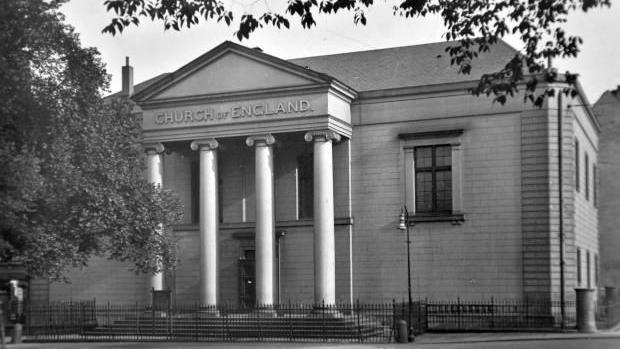
The English Church was rebuilt in the years after the war and reconsecrated as St Thomas a Becket Church in 1947
Once war broke out, an Anglican church with a British caretaker attracted numerous visits from the Gestapo.
"She said they really were nasty and they were strutting about. They were always looking for the Union flag and the British Legion flag which Mabel had hidden under the altar," Max said.
"They were bouncing about, asking where these things were - they were actually walking on top of them."
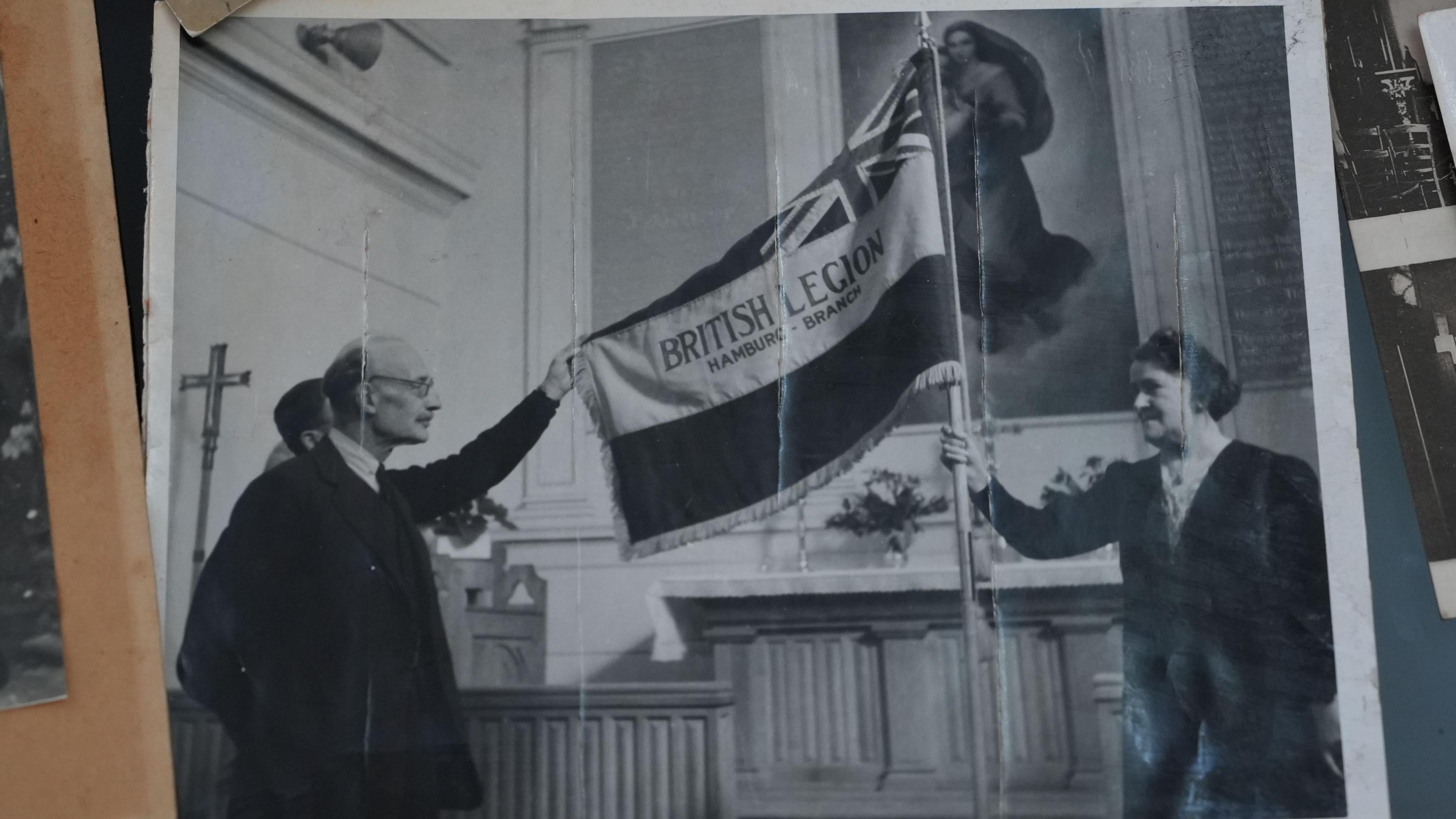
Mabel returned the flag she'd hidden to the British Legion in Hamburg at the end of the war - it is still used to this day
As a key port city, Hamburg was targeted by sustained bombing raids, most notably during Operation Gomorrah in 1943.
In anticipation of this, Mabel hid and stored some of the beautiful paintings and engravings from the church, meaning they were saved from damage.
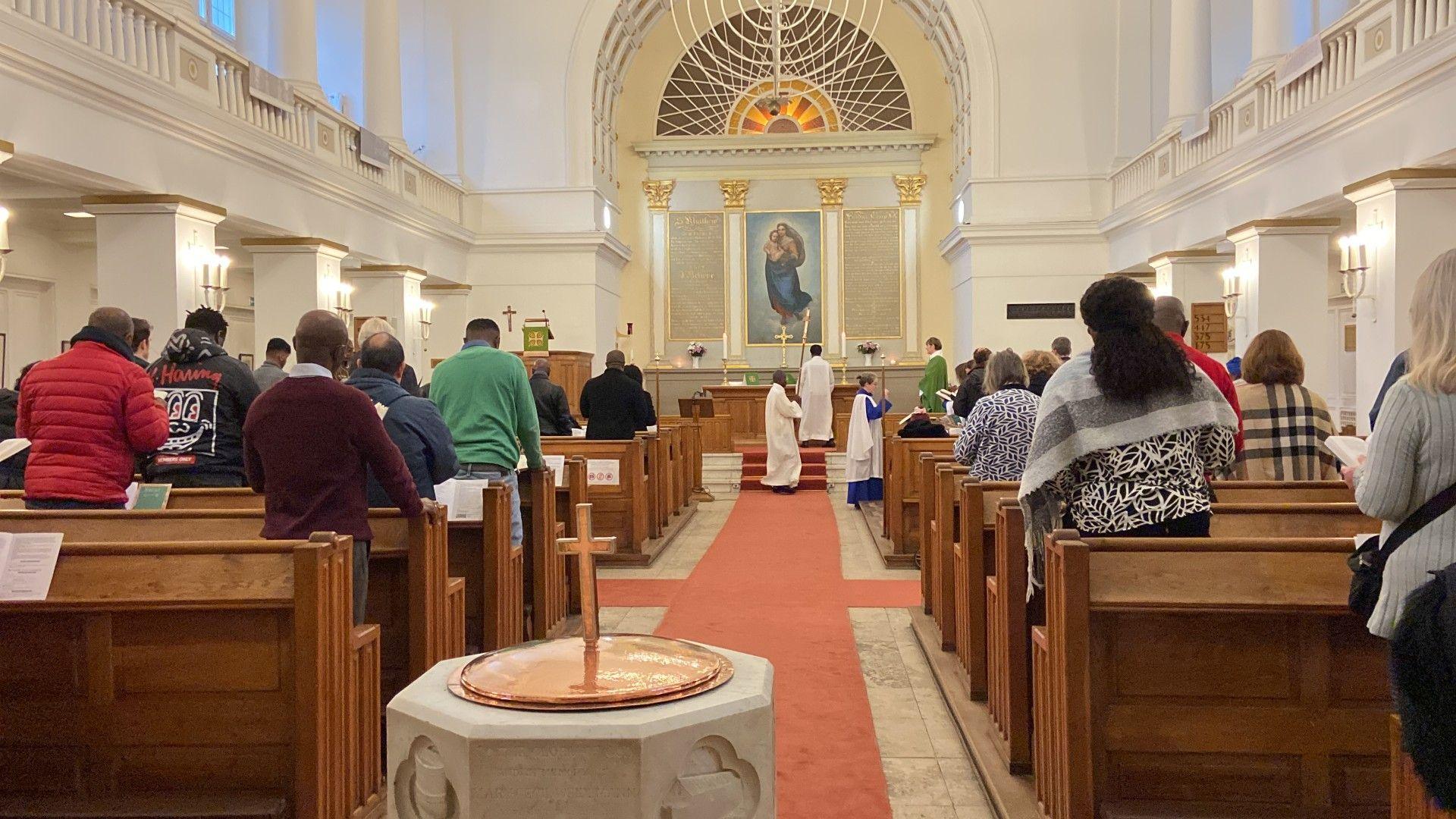
The painting above the altar, a copy of Raphael's Sistine Madonna dating back to 1838, was protected by Mabel during the War - it still hangs in the church.
It seemed there was nothing she wouldn’t do to protect the building during the raids, putting her life at risk.
“She did put fires out, she went around and smothered them and got water and put them out on numerous occasions. She did save the church," said Eddie.
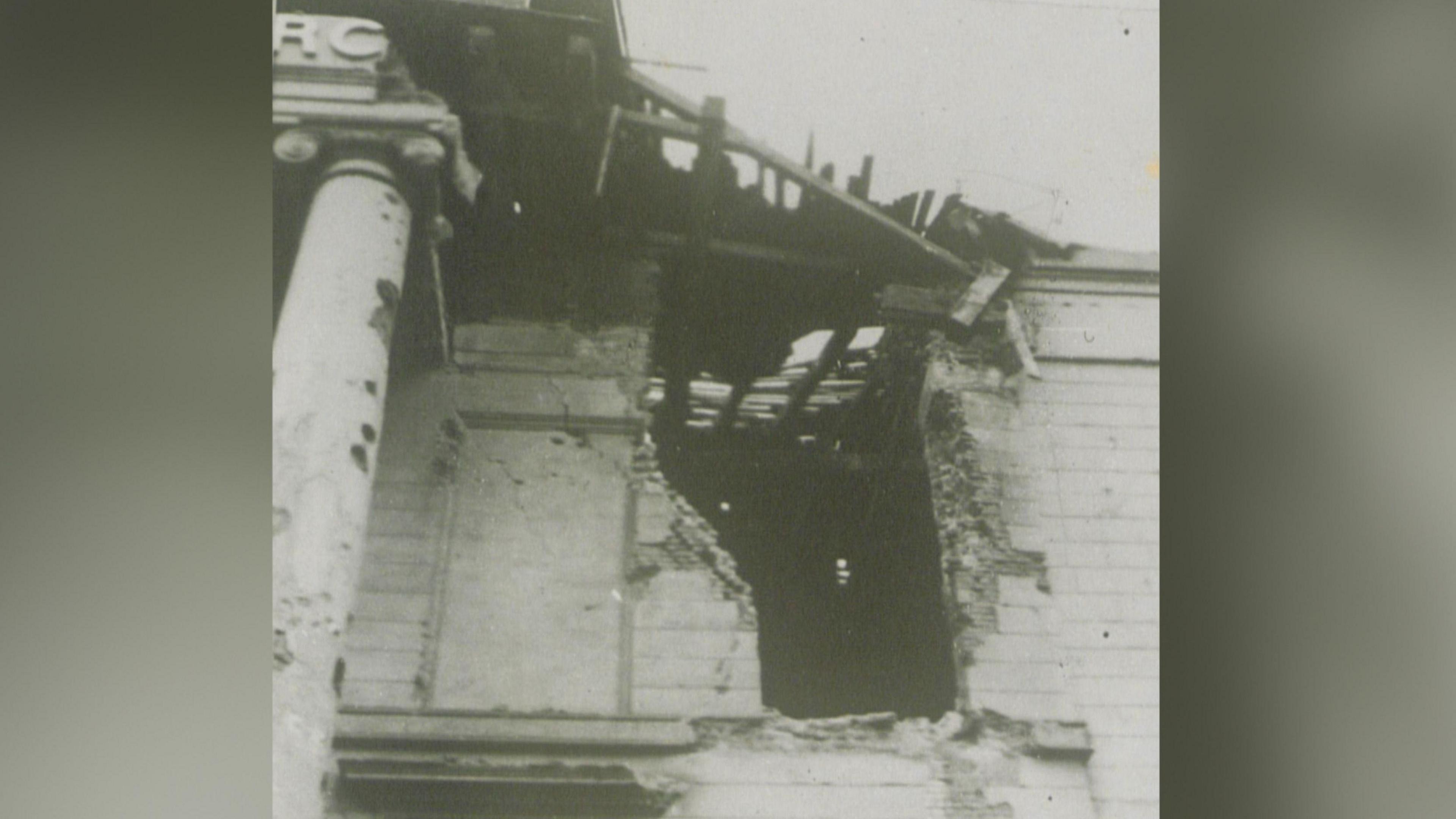
The church was badly damaged by bombings
Mabel Wulff also let families, displaced by the bombings, shelter in the church - again drawing the attention of the Gestapo.
"She was a good person. You didn’t mess with Mabel - she was formidable," Eddie recalls.

Mabel was caretaker of the church for 40 years
At the end of the war, Mabel brought out the union flag she had hidden under the altar and draped it over the church’s balcony as British troops entered the city.
Mabel’s bravery was noted by Church of England officials in 1947, thanking her for the "great personal danger" she put herself in.
In 1956 she was awarded a British Empire Medal for her actions.
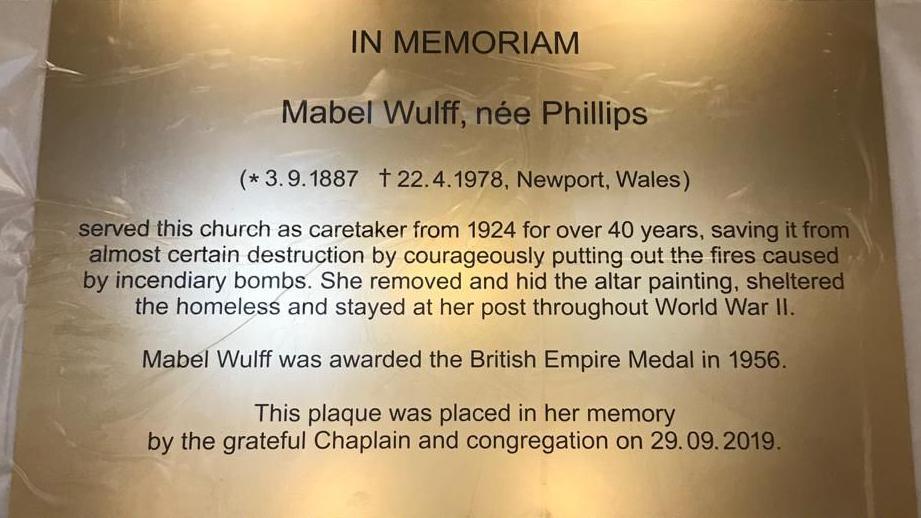
The plaque in St Thomas à Becket church in Hamburg
Even though Mabel returned to Newport in her later years and lived with Eddie and his family when he was a child, much of her story was unknown until relatively recently.
"You would have to drag it out of her. I am very proud of her. Most of it passed me by most of my life. I am in my 80s now and I'm just realising how important my grandmother was."
Related topics
- Published5 October 2019
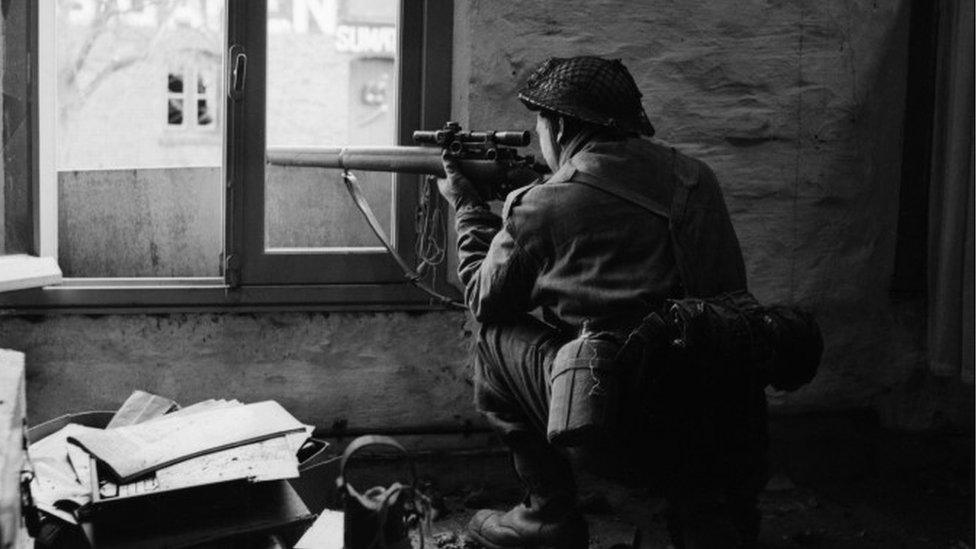
- Published11 September 2024

- Published4 January 2021
